Search
Search Results
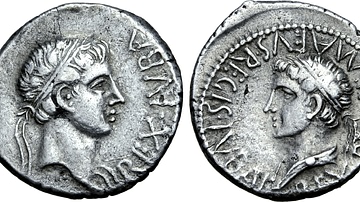
Image
Juba II & Ptolemy of Mauretania
Coin from the co-regency of Juba II (r. 29 BCE - 23 CE) and Ptolemy of Mauretania (c. 10 BCE - c. 40 CE). Left; Juba II, Right; Ptolemy of Mauretania. Silver Denarius, minted c. 20-24 CE. Minted in Caesarea, Mauretania (near modern day...
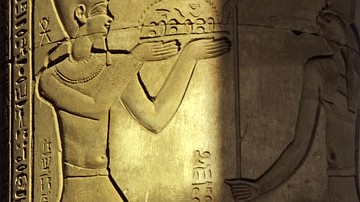
Image
Ptolemy XIII in the Temple at Kom Ombo
A relief of Ptolemy XIII Theos Philopator on one of the pillars in the courtyard of the Temple at Kom Ombo.
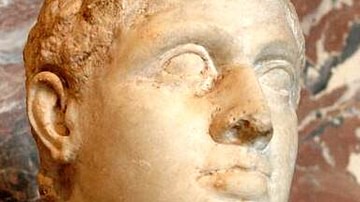
Image
Ptolemy XII Bust
Portrait of Ptolemy XII from the Louvre, Paris.
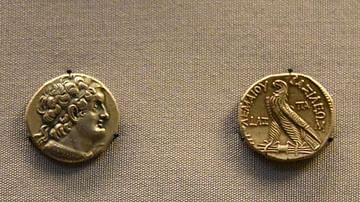
Image
Silver Tetradrachm Coin of Ptolemy III Euergetes II
Both coins were minted in Alexandria, modern-day Egypt. The left coin was minted in 137-136 BCE while the right one in 133-132 BCE. In ancient Egypt, many transactions were made in metal, measured using certain weights. Once coinage was introduced...
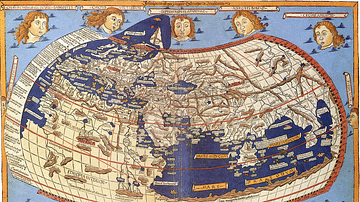
Image
Ptolemy's Map of the World
The map of the world created by the astronomer and geographer Claudius Ptolemy (c. 100 - c. 170 CE). From a 15th-century book by Leinhart Holle. Made by the German cartographer Donnus Nicholas Germanus.
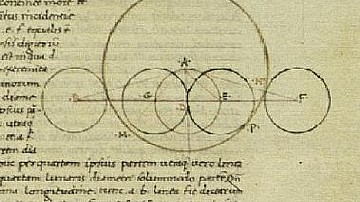
Definition
Greek Astronomy
Ancient Greek astronomy was the study of the universe to understand how it functioned and why apart from the established theistic model that claimed all things were ordered and maintained by the gods. Ancient Greek astronomers relied on observation...
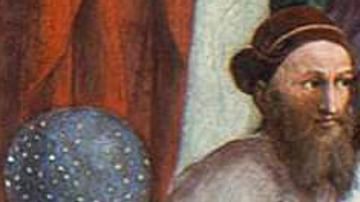
Definition
Hipparchus of Nicea
Hipparchus of Nicea (l. c. 190 - c. 120 BCE) was a Greek astronomer, geographer, and mathematician regarded as the greatest astronomer of antiquity and one of the greatest of all time. He is best known for his discovery of the precession...
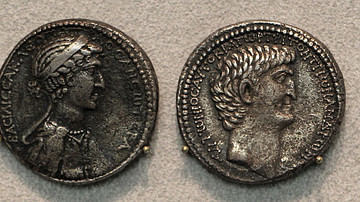
Definition
Alexander Helios
Alexander Helios (40 BCE – c. late 1st century BCE) was a member of the Ptolemaic dynasty, the second oldest son of Cleopatra VII (69 BCE – 30 BCE) and the twin brother of Cleopatra Selene II (40 BCE – 5 BCE). He spent the majority of his...
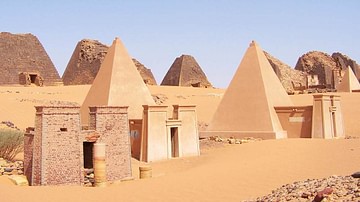
Definition
Ergamenes
King Ergamenes (also known as King Arkamani I, r. 295-275 BCE) was the greatest king of the city of Meroe, Kingdom of Kush (located in modern-day Sudan) who broke free from Egyptian dominance to help direct a wholly distinct culture. The...
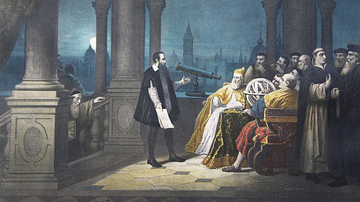
Definition
Galileo Galilei
Galileo Galilei (1564-1642) was an Italian mathematician, physicist, astronomer, and natural philosopher. He created a superior telescope with which he made new observations of the night sky, notably that the surface of the Moon has mountains...